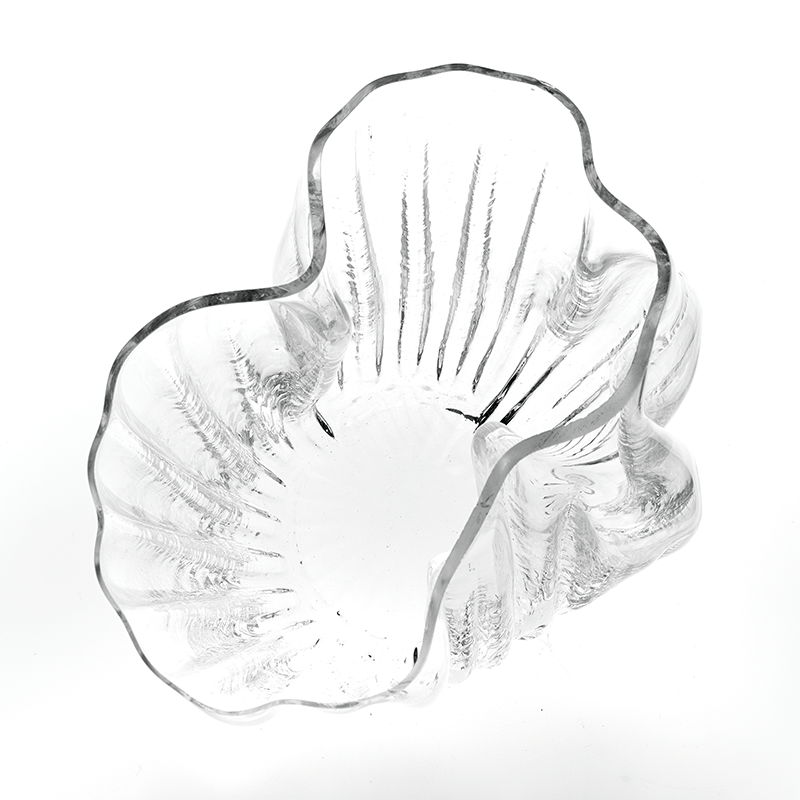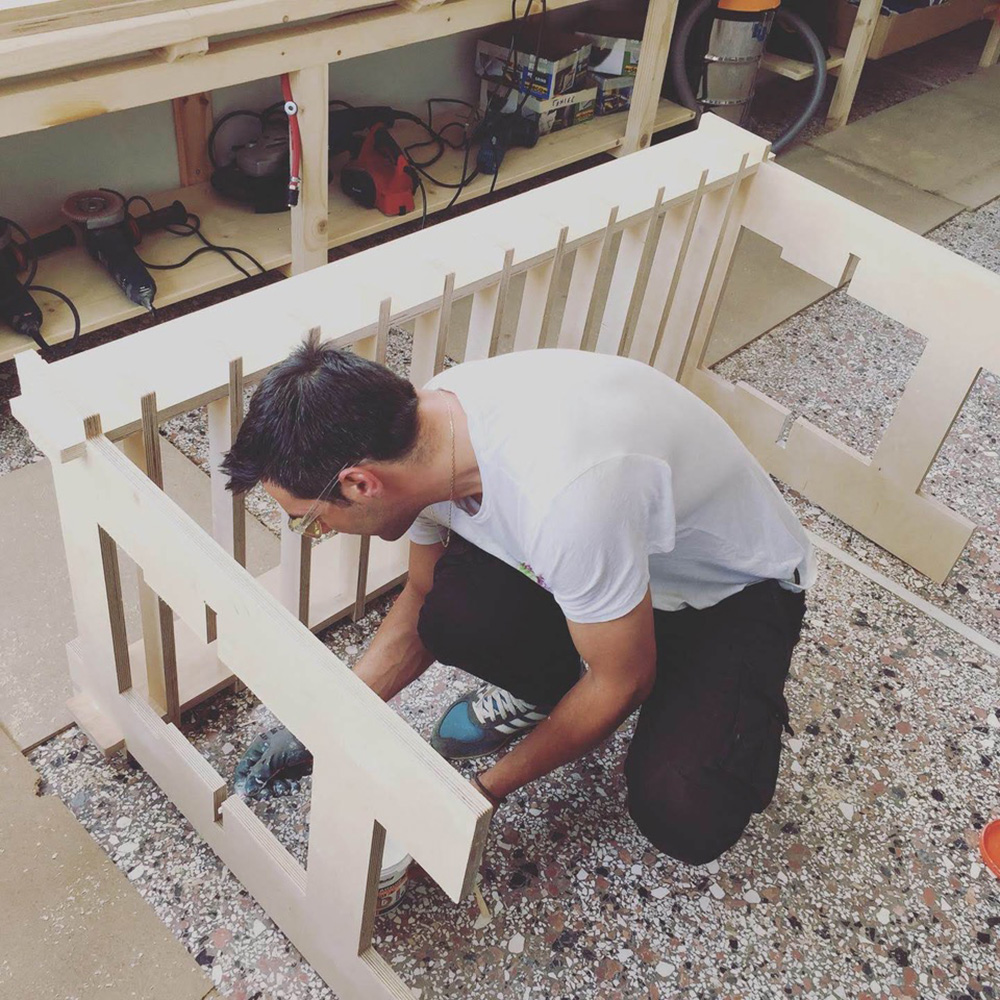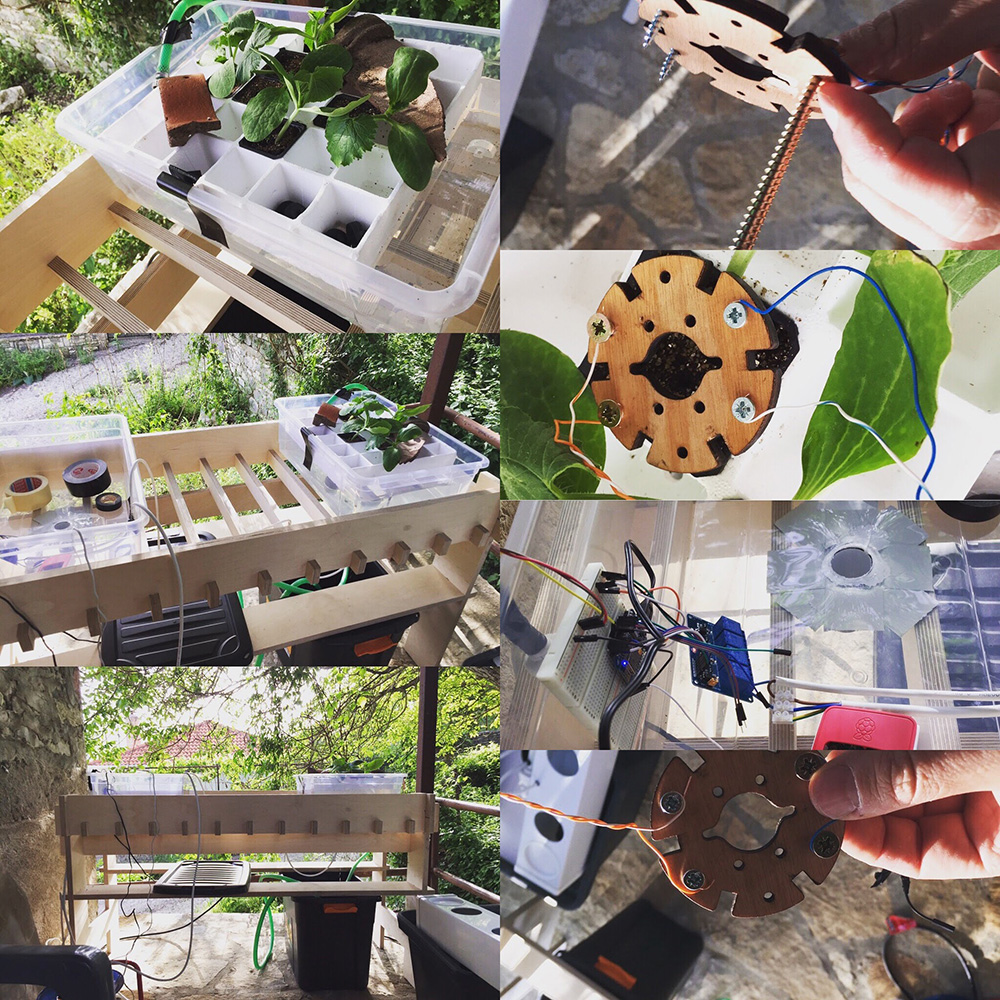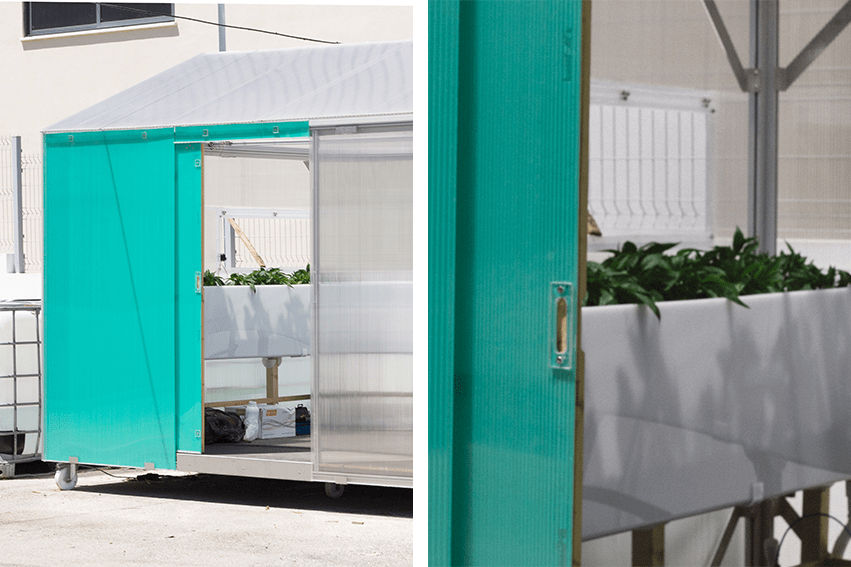MakersXchange: Interview with André Rocha, FabLab Benfica
Published 11 October 2021 by la rédaction
For MakersXchange (MAX), a study on the mobility of makers, the European Creative Hubs Network is conducting a series of in-depth interviews aiming to explore the needs of makers in relation to mobility programmes as well as highlight good practices for social inclusion and skills development. Interview with André Rocha, from FabLab Benfica.
Fab Lab Benfica takes the name of the surrounding neighbourhood in Lisbon, while sitting inside the Higher School of Education at the Polytechnic of Lisbon and it aims at establishing strong ties with the local community, empowering this spirit inside the school’s own community. André Rocha one of the co-founders of the FabLab and professor at the Polytechnic School of Lisbon, met with ECHN and provided his insights on makers’ mobility.

Can you briefly describe your organization? Is your organisation addressed to makers, do you host makers activities?
André Rocha: The FabLab is located inside the Higher School of Education at the Polytechnic of Lisbon, a school mainly aimed at teaching and training future educators. We have integrated the Visual Arts Department from the Polytechnic school, so we also run a Visual Arts and Technology course. Even though this course is not specifically aimed towards future educators some of them will become for sure.
FabLab Benfica is a structure that was founded by a team of professors which I was part of and some students. We found the opportunity, since there were some facilities that weren’t being used and we started the FabLab for mere productivity and because we had a previous connection with the maker community. I had personally founded a FabLab in the past and I’ve been looking at these matters for a long time, integrating them in the courses I teach, especially in open distributed design.
FabLab Benfica is mainly aimed at forming communities inside the school, but it is also connecting them with the external community. We have already facilitated some activities that addressed the surrounding neighbourhood and tried to connect it with our students. We also host makers from other partner institutions. For example, this period, we are hosting a resident from another FabLab in Denmark. This was not part of a programme, the maker decided to come to Lisbon and we happily accepted to host him!
For us these activities are always interesting because we are a public institution, and we don’t charge for hosting projects. What we always try to do is ask the residents to somehow integrate our students in the process of their project. This makes the FabLab a connecting point for the external and internal communities.
You are also coordinating the Maker Faire in Lisbon, is that right?
André Rocha: Yeah! It’s a local activity and we are coordinating it. It’s taking place in the context of the Distributed Design Market Platform that we are also part of, alongside FabLab Barcelona. Maker Faire Lisbon existed for three editions but then it stopped. However, we managed to reactivate it through this grant from the Distributed Design platform.
Last year obviously there wasn’t a Maker Faire however, this year we are going to do a hybrid, “in between” version, which will include small exhibitions. We are also trying to develop an archive where it might feature the works that we have developed through our participation in the exchanges of MAX projects.
Have you participated in any mobility programs for makers in the past? Can you elaborate on your experience(s)?
André Rocha: We generally apply for these opportunities since we relate to other mobility programmes. However, mobility is a bit informal in the maker community, take for example the case of the maker from Denmark that we are currently hosting or even myself. I spent some time in a residency in P2P Lab, which is in Ioannina, Greece. While I was there, I also visited Habibi.Works and the makerspace of P2P Lab, Tzoumakers, in Tzoumerka.


From your experience, what would be the challenges in mobility for makers?
André Rocha: I believe that most of the challenges are mainly project-related. I mean that there are two main necessities, from my point of view. One is to put your ideas to the test outside of your local context. This it’s something that in makers’ practice doesn’t exist. As a maker you are not the same as a company, you don’t have access to markets for example so, if you are in a totally different setting, teaching other makers what you are doing and testing your ideas in a local context, that is a challenge. In this case mobility needs to be project related and not person related, even though makers are the ones moving from one place to another.
The second one is training. This is also an important aspect because makers depend on their tools. They are mostly used to their own work ecosystem, if they move to another workshop, they need a lot of time to get used to it, moving around, operating different machines, so adaptation plays an important role when moving. That is unless they are working on training or bringing their own artifacts, showcasing their work. If that’s the case, then the whole process is simpler.
You must play safe if you don’t have much time for the exchange. If the nature of the exchange is more exploratory you will need plenty of time. If that’s the case, the residency or the exchange should take place during a semester, just like an Erasmus programme. Otherwise, it must be clear from the beginning that if the timeframe is short, the exchange would have to be project related, mostly for showcasing the process or the project. Time management and allocation is a very important challenge for makers’ mobility.
So, you would say that a long-term mobility scheme would be more suitable for makers’ practices?
André Rocha: Yeah! A long-term mobility scheme would be more appropriate for makers developing projects abroad and trying to adapt in another context and in a different working environment. On the other hand, short term residencies mostly work best for organizing workshops and applying already developed and tested practices.
From your experience, would you like to add any good practices related to mobility?
André Rocha: I think that the idea of dedicating some time and interacting with the local community to help the hub develop its own community is a good practice. Both of our mobility applications, for the Hyper Global / Hyper Local Programme, were also aimed at that.
During our remote exchange, we developed a workshop together with Camilo Parra Palacio (Otto DIY) which later on triggered a process of project development. Our students had 3 sessions with Camilo and then they developed their own Otto robot projects during the semester. So, showcasing Otto DIY resulted in five different versions of Otto robots. I think that’s good practice. We also hope to continue that with the local workshop that we are preparing for the second round.

How do mobility experiences bring value to your organization and community?
André Rocha: Just as I mentioned previously, I believe that this interaction helps you to build a community. It helps you engage with the local community so you can bring different views and open possibilities for others who are also trying to develop their own projects in the makerspace.
What would be a dream mobility scheme for makers? Would you give priority to travel support, social encounters, technical access or network building?
André Rocha: I believe that you could have all, like a speed dating format, where the makers test, go in a short-term residency, they showcase their work, they get to know other people and socialize with the locals. Then, if there is a match, it would be interesting to develop a long-term mobility scheme, like a one-semester residency to develop new projects. In this case the makers will meet and experiment with new conditions, for example: materials, supporting the local FabLab, a per diem and maybe financial support to cover the costs of hosting a final presentation.
It would be also interesting to support the launch of open calls. For example, if there is an issue that needs to be addressed locally, then an institution could organize a 1 or 2-month long residency for a small group of makers that will come and study this issue and contribute by providing possible solutions. That would be a dream!
What is mobility in times of world pandemics? Should we still invest in that? And, considering our travel restrictions, how can we continue to grow and reinforce networks, if we cannot meet one another? And why is that important (or not)?
André Rocha: I don’t believe that we could stand this situation for much longer and of course we need to account for travelling. But at the same time this process is all about empathy, if you develop a project you need to empathize with your local community. Mobility is mostly about that, it’s about cohesion. You cannot have cohesion if people don’t feel the whole as their own and that’s why we are looking into makers’ mobility.
For example, it was interesting for me, as a researcher, to talk to farmers of northern Greece and see how similar they were, as southern Europeans to our farmers and how different they were, as Greeks to Portuguese. This is impossible to replicate through online meetings. Currently they might be the only alternative to travelling, but it takes a lot out of the experience of meeting with people, if we are talking about mobility.
MakersXchange is a Pilot policy project co-funded by the European Union. MAX project is implemented by the European Creative Hubs Network, Fab Lab Barcelona, UPTEC and Makery.
